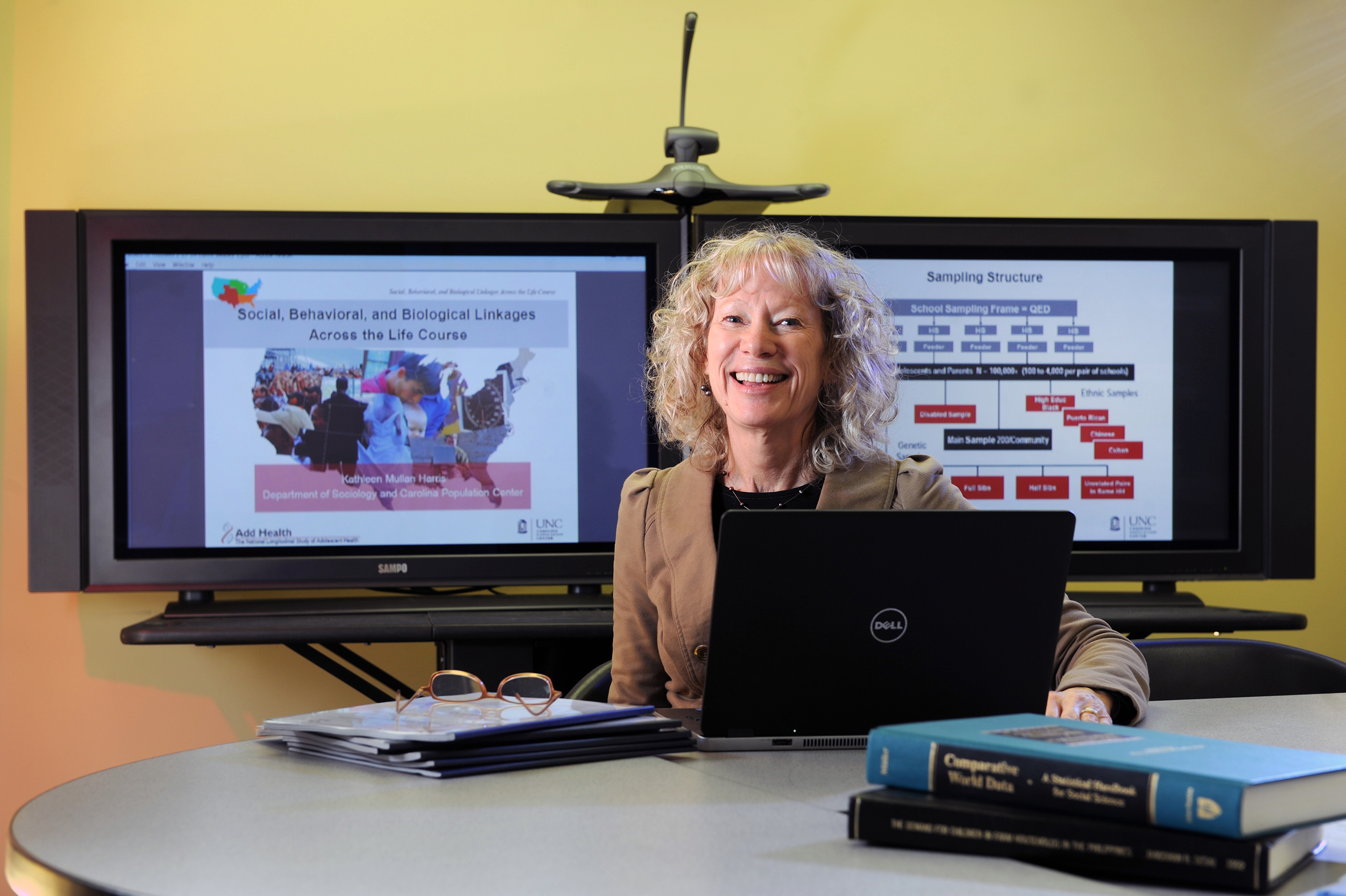
Kathleen Mullan Harris, James E. Haar Distinguished Professor of Sociology at the University of North Carolina at Chapel Hill, has been elected into the National Academy of Sciences, one of the highest honors that a U.S. scientist or engineer can receive.
Harris is the third woman and 22nd faculty member to be elected into the academy in the history of the University. The academy is a private organization of scientists and engineers dedicated to advancing science and technology and their use for the public good. She joins 84 new members and 21 foreign associates from 15 countries elected into the academy.
“The contributions that Dr. Harris has made during her career go far beyond UNC-Chapel Hill and the scientific community,” said Chancellor Carol L. Folt. “Her work is making a profound difference in understanding the impact of environment and genes in the life course of teenagers, and bringing about social change. I am pleased to see her outstanding accomplishments recognized by membership in the National Academy of Sciences.”
With the new class of members announced by the academy Tuesday, there are 2,214 active members and 444 foreign associates. The academy was established by Congress in 1863 as an official adviser to the federal government, upon request, in any matter of science or technology. Candidates for membership can only be formally nominated by academy members.
Harris, based in the College of Arts and Sciences and the Carolina Population Center, is the director and principal investigator of the National Longitudinal Study of Adolescent Health (Add Health). The longitudinal study follows more than 20,000 teenagers into young adulthood. With Add Health data, Harris is studying health disparities, the acculturation of immigrant youth, and the family formation behavior of young adults, including non-marital childbearing, cohabitation and marriage.
Under Harris’ pioneering leadership, the next wave of Add Health is expanding its biological data collection to bridge biological and social sciences in the study of developmental and health trajectories from adolescence into young adulthood. Harris is leading the Add Health project team with cardiologists, geneticists, sociologists, epidemiologists, nutritionists, economists and research methodologists.
Harris’ work and her wide-ranging experience in running large data collection projects have made her an internationally recognized expert on social inequality and health, and a pioneer in bridging social and biomedical sciences to advance knowledge on the development of health trajectories across the life course. She is currently conducting whole genome genotyping on over 12,000 archived DNA samples of Add Health respondents that will be merged with the extensive longitudinal environmental, behavioral and biological data for a genome wide association study.
She has published almost 100 books, articles, chapters and reports in multiple social, biomedical genetic and public health science journals and books.
In 2004, Harris was awarded the Clifford C. Clogg Award for Early Career Achievement from the Population Association of America. She was elected vice president of the Population Association of America in 2005 and went on to become its president in 2008. In 2013, Harris was also awarded the Warren E. Miller Award for Meritorious Service to the Social Sciences, a biennial award from the Inter-University Consortium for Political and Social Research to recognize individual who have had a profound impact on infrastructure and social science research.
By Thania Benios, UNC News Services



